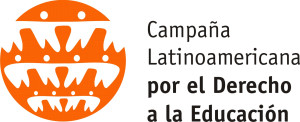Infobae
CIES 2020: None of the countries from Latin America and the Caribbean explicitly prohibit profit in education
May 12, 2020
Por: Thais Iervolino
During the virtual panel organized by CLADE, experts analyzed education privatization trends and processes, as well as profit in education in the region.
Chile, Haiti and Paraguay are three countries from Latin America and the Caribbean where legislations clearly lead to the generation of profit and privatization in and from education. At the same time, Argentina, Brazil, Colombia, Honduras, Mexico and Peru have legislations that allow for profit in education. These are some preliminary findings of the study on “Profit and education within legal frameworks in Latin America and the Caribbean” that the Latin American Campaign for the Right to Education (CLADE) is conducting.
Some of the conclusions of the research were presented by Teise Garcia, from the Research and Study Group on Education Policy (GREPPE, by its Spanish acronym) from Brazil, during the virtual panel: “Marketization and Profit in and from Education: Global and Regional Perspectives in Latin America and the Caribbean”. The debate was held within the framework of CIES 2020 on April 15.
“We did not find a full prohibition that explicitly prevents public incentives to profit in any of the countries of the region that were analyzed in this study. Only Argentina is worth mentioning because bilateral and multilateral agreements related to profit generation are prohibited”, stated Teise García.
Apart from the researcher, the panel was attended by the following participants: David Archer from ActionAid International; and Cecilia Gómez from the Colombian Coalition for the Right to Education, (CCDE, by its Spanish acronym). Camilla Croso, General Coordinator of CLADE, and Toni Verger, from the Autonomous University of Barcelona, were in charge of the debate and moderation, respectively.
The objective of the panel, organized by CLADE, was to promote reflections and dialogue on education privatization and profit processes in the region, as well as their negative impact on the realization of education as a human right for all.
Lack of funding and creation of poverty
For David Archer, from ActionAid, the increase in education marketization and profit owes mainly to the lack of public funding for this right which is a problem that educators, activists and consultants should focus on.
Insufficient public education coverage, combined with a growing structural deficit in public education funding has paved the way for the emergence and consolidation of a for-profit private education market which seems to be increasingly the norm in the region”, he said.
He added that the reason for this lack of adequate funding for the right to education, in most cases, is the external debts of the countries and the absence of tax justice. “There is a new external debt crisis”. At this moment, there are 60 countries that allocate more than 12% of their Gross Domestic Product (GDP) to pay the external debt. This means that the payment of the debt exceeds the financing for education and health, which is absurd amidst the COVID-19 crisis that we are facing”, he pointed out.
According to Cecilia Gómez, lack of State funding for the realization of rights and, consequently, the privatization of public services, create poverty. “I think that this neoliberal model which in our countries results in privatization (of water, energy, education, etc.) creates extremely high poverty rates, impoverishment of people who are already poor and are now reaching misery levels”.





